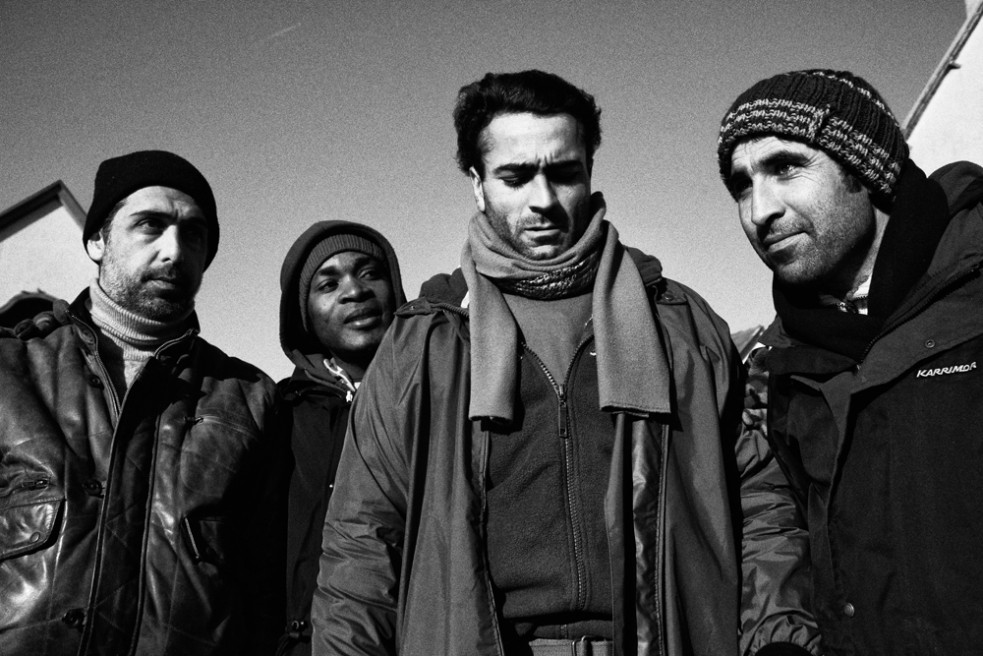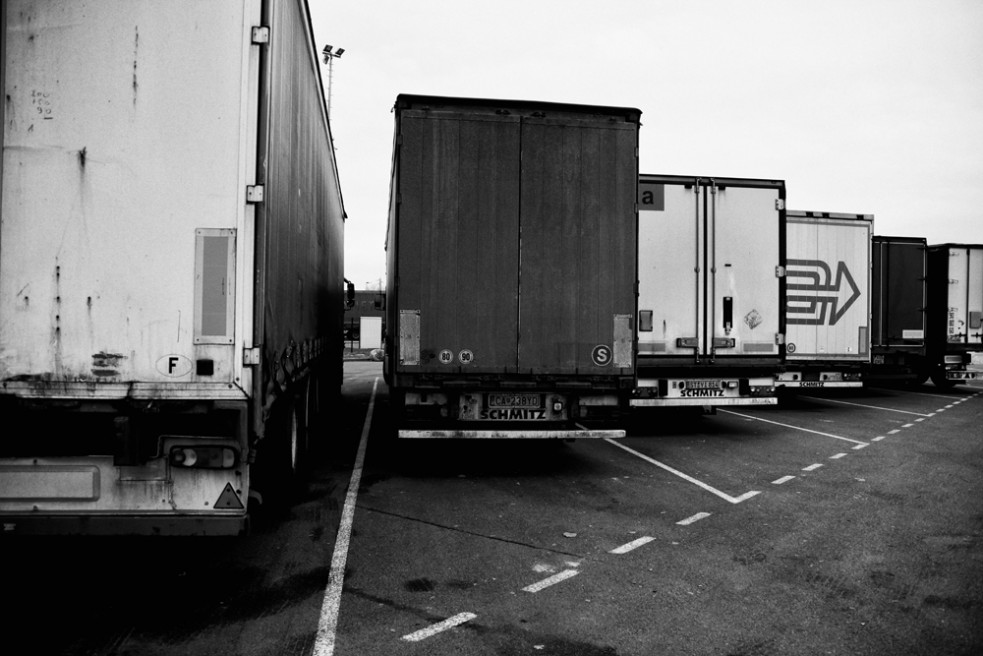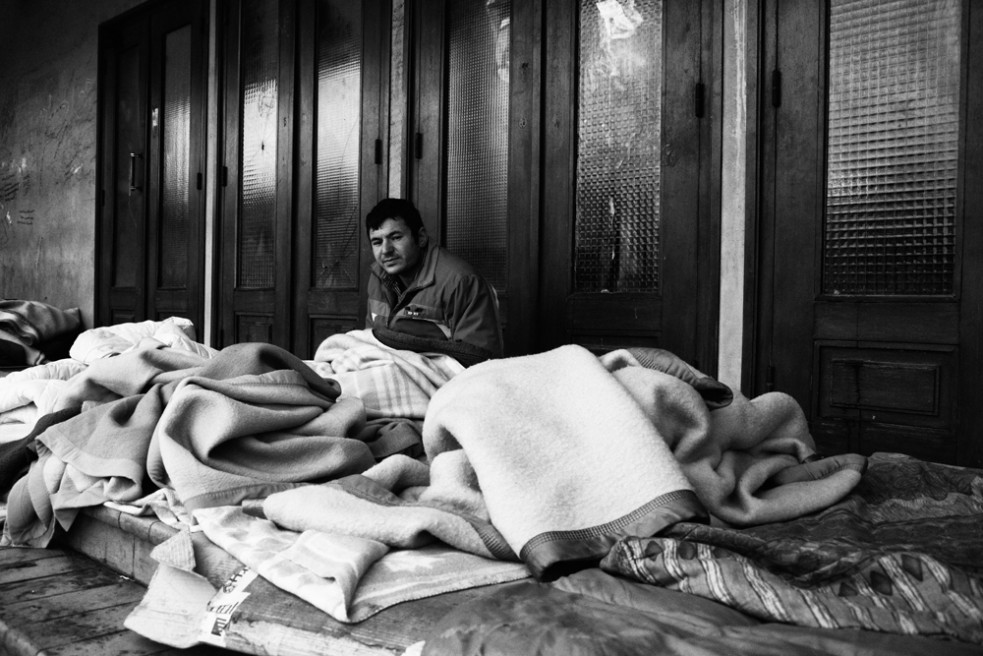Terre des Oublis
The history of migration to Calais, France is a long, complicated and often violent one. Tears have been shed and blood has been spilled on the streets of this once-prosperous seaside town in Northern France. Despite some media coverage, it remains Terre des Oublis: “The land of the forgotten.”
For those seeking asylum from war and conflict, the United Kingdom (separated from France by the 21 mile-wide English Channel) is seen as the Promised Land. Currently, most migrants who seek to make the crossing are from war-torn Afghanistan or Sudan’s Darfur region. Lengthy journeys across deserts or over mountaintops have been undertaken to get here. Large sums of money have been exchanged. Tales of woe- family members lost at sea, beatings by local authorities, running from gunfire- are commonplace. Many are here by choice; they seek a better economic future and the possibility to send money to far away families. Others are here out of necessity; to remain in their homelands would assure their death or that of their families.
Calais is the staging ground for the final push into the U.K. and toward a better life. To have made it this far without incident is rare, and to make it to England from here, unlikely. They make this journey by stowing away on cargo trucks or trains that ply the English Channel. Only the strong, persistent and lucky will attain the dream.
In Calais, they cling to a meager existence as they bide their time. It is a life of boredom and frustration. Their days are spent in and out of charity food-lines, searching for shelter against the cold or on vigilant lookout from the police who seek their arrest and deportation.
Most of the Sudanese take refuge in a downtown abandoned warehouse. Through broken panes in the skylights the rain often falls and, through destroyed walls, the wind carries a chill. There is no access to running water, toilet facilities, electricity or basic sanitation. About 80 migrants and one cat live amongst the decaying detritus. Continually hassled by the local police (CRS) they sleep in tents, upon wooden shipping pallets or on filthy, discarded mattresses. Most live in a state of fear and constant vigilance; to be caught here or upon the streets of Calais will result in arrest and/or deportation back to the darkest of continents.
Like the Sudanese, the Afghan asylum seeker population live in similar conditions. Under abandoned railroad freight cars, they shelter against driving rains and biting cold. Police visits similarly plague them and arrest/deportation is commonplace.
Despite these conditions and the sense of hopelessness, these men soldier on. During my time with them, I witnessed an uncommon resilience. As each day unfolded, and as England became more of a distant dream, they persevered.
Theirs is a difficult world to penetrate although numerous journalists have tried. Many fear recognition; their presence in Calais is illegal and they fear that any published likenesses will lead to arrest should they ever make it across the English Channel.
After days of standing on the periphery and voyeuristically looked in, I was invited into their world. Endless smiles, cigarettes, shared cups of chai and patience closed the distance between our two worlds. As tensions evaporated and trust was established, I began to shoot. Hassan from Darfur and Malik from Jalalabad were invaluable to my experience. The bonds we formed paved the way for additional friendships and access to the rest of the community.
I shared in their food, bedded down beside them and took up a place at the fire pits as day turned to night. During the constant police raids, I did not run; I am white, affluent and enjoy the privileges offered by my nationality. While they scrambled into dark crevices, under moldering floors or over barbed wire fences and walls, I stood and bore witness. “Mehadeen, one cigarette!” “Mehadeen, how you?” “Mehadeen, you want chai?” Mehadeen is Arabic for a kind of holy man. I am told that he is one who protects the faith and watches over the weak. It is a badge of honor, they say. “You good man, Mehadeen!”
I cannot guarantee that my work will change the minds of those that view it. I cannot assure that the laws governing this issue will be redrafted to allow for compassion and humanity. I can, however, promise that I will stand with them for as long as I am here. I do not ever forget the privileges I have been granted on the railroad tracks and in this abandoned warehouse somewhere in Northern France. I am inspired by the courage of these men living in Terre des Oublis. I can only hope that my work shows their dignity, humanity, perseverance, and strength.






















